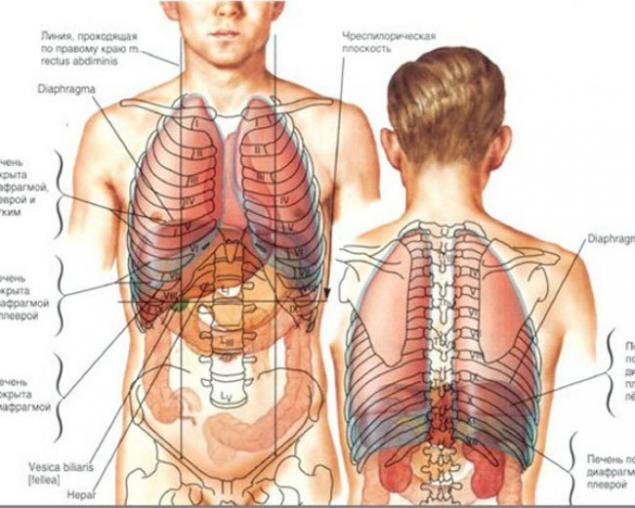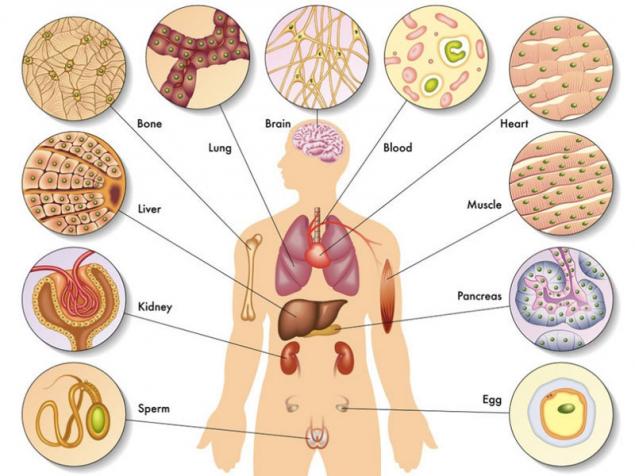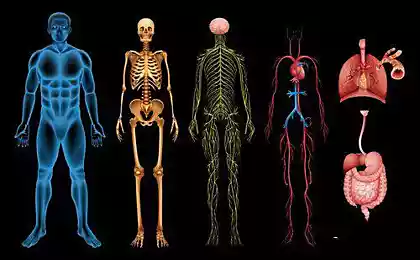331
Everything that affects the brain affects the body equally.
Have you noticed that we feel and behave differently with other people? "The mood has changed," we say. In fact, not only the mental attitude changes, but also The physiology of our body, which instantly reacts to what is happening around us.
People unconsciously perceive the “language” of the body and facial expressions of each other with all their senses. Empathy, imitation, copying is inherent in us at the genetic level. It is not in our power to control these abilities at will: to empathize or imitate only when we want to and as much as we need to.
We, as communicating and transfusing vessels, transmit our moods, experiences, nervous relationships to each other, “infecting and becoming infected.” Do you agree that such feelings as anger, fear, resentment are very contagious? Just like laughing and smiling.

Effects of emotions on health
Emotions (from Latin emoveo - shake, excite) are subjective reactions of a person and higher animals to any external and internal stimuli.Emotions accompany all the processes of human life, can be caused by situations or events that exist only in our imagination.
In other words, it is a personal relationship, a person’s reaction to events happening to him. Today, scientists argue a lot about how harmful negative emotional manifestations are to people’s health. And there is an opinion that in reasonable amounts stress is even useful, as it helps the body to stay in good shape, not to sour and pushes to action. However, prolonged exposure to strong emotions, both positive and negative, causes a state of stress and is fraught with health problems.
Humanity has long known that emotions have a direct impact on health. This is evidenced by the popular sayings: “All diseases from nerves”, “Health can not buy – his mind gives”, “Joy young, grief ages”, “Rye eats iron, and sorrow – heart”.
Even in ancient times, doctors determined the connection of the soul (emotional component) with the physical component - the human body. The ancients knew that everything that affects the brain affects the body equally. However, in the seventeenth century, at the time of Descartes, this was forgotten. And man safely "divided" into two components: mind and body. And diseases were defined as either purely physical or mental, which were treated in completely different ways.
Only now have we begun to look at human nature, as Hippocrates once did, in its totality. It is impossible to separate the soul and body. Modern medicine has accumulated enough data that confirms that the nature of most diseases is psychosomatic, that the health of the body and spirit are interrelated and interdependent. Scientists from different countries studying the effect of emotions on human health have come to very interesting conclusions.
Thus, the famous English neurophysiologist Charles Sherrington, Nobel Prize winner, established the following pattern: The first is an emotional experience, followed by vegetative and somatic changes in the body.
German scientists They established the connection of each individual organ of a person with a certain area of the brain through the nerve pathways. American scientists develop the theory of diagnosing diseases by human mood and express the possibility of preventing the disease before its development. This is facilitated by preventive therapy to improve mood and the accumulation of positive emotions.
It is important to understand that it is not a one-time upset that provokes somatic illness, but long-term negative experiences caused by stress. These experiences weaken the immune system and make us defenseless. A chronic feeling of causeless anxiety, depressive states and depressed mood are good grounds for the development of many diseases. Such negative mental manifestations include anger, envy, fear, despondency, panic, anger, irritability, that is, emotions that should be avoided.
Orthodoxy refers such emotions as anger, envy and despondency to mortal sins, and not accidentally. After all, each such mood can lead to serious diseases of the body with a very sad outcome.
The importance of emotions in oriental medicine
Eastern medicine also claims that mood and certain emotions can cause diseases of certain organs. According to the representatives of oriental medicine, physical health and emotions are quite closely related. Our feelings, both good and bad, greatly affect our body.
Moreover, representatives of oriental medicine find the connection of emotions with various organs.
For example, kidney problems can be caused by feelings of fear, weak will and self-doubt. Since the kidneys are responsible for growth and development, their proper functioning is especially important in childhood. Chinese medicine encourages children to develop courage and self-confidence. Such a child will always correspond to his age.
The main respiratory organ is the lungs. Disturbances in the lungs can be caused by sadness and sadness. Impaired respiratory function, in turn, can cause many concomitant diseases. Treatment of atopic dermatitis in adults, from the point of view of oriental medicine, should begin with an examination of all organs, including the lungs.
Lack of vitality and enthusiasm can negatively affect the work of the heart. Also, for the good work of the main organ, following Chinese medicine, poor sleep, depression and despair are contraindicated.
The heart regulates the function of blood vessels. His work can be easily identified by complexion and language. arrhythmia and heart palpitations are the main symptoms of heart failure. This, in turn, can lead to mental disorders and long-term memory disorders.
Irritation, anger and resentment affect the liver. The consequences of liver imbalance can be very severe. This is breast cancer in women, headaches and dizziness.
Chinese medicine encourages you to experience only positive emotions. This is the only way to maintain good health for many years. However, it is unlikely that a modern person will be able to get rid of negative emotions, as by waving a magic wand. Do we have a way out of this situation?

First of all, it should be remembered that emotions are necessary for us, since the internal environment of the body must exchange energy with the external environment. And such energy exchange will not be harmful if it involves natural, inherent in nature emotional programs: sadness or joy, surprise or disgust, shame or anger, interest, laughter, crying, anger, etc. The main thing is that emotions are a reaction to what is happening, and not the result of “twisting” yourself, so that they appear naturally, without anyone’s coercion, and do not exaggerate.
Natural emotional reactions should not be restrained, it is only important to learn how to show them correctly. Moreover, one should learn to respect the expression of emotions by other people and to perceive them adequately. And in no case should you suppress emotions, no matter what color they wear.
Ayurveda on the suppression of emotions
Suppressed emotions do not dissolve in the body without a trace, but form toxins in it, which accumulate in the tissues, poisoning the body.. Fear and anxiety change the flora in the colon. As a result, the stomach swells from gas that accumulates in the folds of the colon, causing pain (often this pain is mistakenly attributed to heart or liver problems). Suppressed anger completely changes the flora in the gallbladder, bile duct, small intestine, causes inflammation of the surface of the mucosa of the stomach and small intestine. Attachment and greed can cause stagnation in the lungs and organs of the gastrointestinal tract.
Due to the painful consequences, it is recommended not to suppress either emotions or bodily manifestations (coughing, sneezing and gas output).
Repressed emotions are the cause of tridosha imbalance, which in turn affects the fire of digestion, which is responsible for immunity in the body. The reaction to such a violation can be the occurrence of various kinds of allergies to quite harmless phenomena such as pollen, dust and floral smell. The suppressed fear will cause disturbances associated with products that increase vata-dosha (wind imbalance).
Suppressing anger and hatred can worsen reactions to foods that increase pitta dosha (fire imbalance). In this case, the person will be sensitive to hot, spicy, salty food.
People with a kapha constitution (body type – water), suppressing the emotions of kapha dosha (attachment and greed), will have an allergic reaction to kapha food, i.e. will be sensitive to food that worsens kapha, mucus-forming food (dairy products, white bread, etc.). This can result in constipation and wheezing in the lungs.
Sometimes an imbalance that causes a painful process can first arise in the body and then manifest in the mind and consciousness and, as a result, lead to a certain emotional background. So the circle closes. Imbalance, manifested at first on the physical level, later affects the mind. As we have shown above, vata disorder provokes fear, depression and nervousness. Excess pitta in the body will cause anger, hatred and jealousy. The deterioration of Kapha will create a hypertrophied sense of possessiveness, pride, and attachment. Thus, there is a direct relationship between diet, habits, environment and emotional disturbances. These violations can be judged by indirect signs that manifest themselves in the body in the form of muscle clamps.
How to detect a problem The physical expression of emotional tension and accumulated emotional toxins in the body are muscle clamps., the causes of which can be both strong experiences and excessive rigor of education, malevolence of employees, self-doubt, the presence of complexes, etc. If a person has not learned to get rid of negative emotions and is constantly tormented by any heavy experiences, then they sooner or later manifest themselves in the muscle clamps in the facial area (forehead, eyes, mouth, back of the head), neck, chest area (shoulders and hands), in the lumbar, as well as in the pelvis and lower extremities.
If such conditions are temporary and you manage to get rid of the negative emotions that provoke them, then there is no reason to worry. However, chronic muscle tightness in turn can lead to the development of various somatic diseases.
Consider some emotional states that, being in a chronic form, can cause certain diseases.
Suppression is a sluggish mood. independent of circumstances, for a long time. This emotion can cause quite serious problems with the throat, namely frequent sore throats and even loss of voice.
Self-eating means feeling guilty for everything you do. The result can be a chronic headache.
Irritation is a feelingWhen you get annoyed by literally everything. In this case, do not be surprised by frequent attacks of nausea, from which medications do not save.
Resentment – feeling humiliated and insulted. Be prepared for gastrointestinal disorders, chronic gastritis, ulcers, constipation and diarrhea.
Anger - causes a surge of energyIt grows rapidly and suddenly spreads. An angry person is easily frustrated by failure and is unable to restrain his feelings. His behavior is wrong and impulsive. As a result, the liver suffers.
Excessive joy dissipates energy. It's sprayed and lost. When pleasure is the main thing in a person’s life, he is unable to retain energy, always looking for satisfaction and more and more intense stimulation. As a result, such a person is prone to uncontrollable anxiety, insomnia and despair. In this case, the heart is often affected.
Sadness - stops the action of energy. A person who has gone into the experience of sadness breaks away from the world, his feelings dry up, and motivation withers. Protecting himself from the joys of attachment and the pain of loss, he arranges his life in such a way as to avoid the risks and vagaries of passion, becoming beyond the reach of true intimacy. Such people have asthma, constipation and frigidity.
Fear reveals itself when survival is in question. From fear, energy drops, a person stones and loses control over himself. In the life of a person who is seized by fear, the expectation of danger prevails, he becomes suspicious, withdraws from the world and prefers loneliness. He is critical, cynical, confident in the hostility of the world.
Isolation can cut him off from life, making him cold, hard and unspiritual. In the body, this is manifested by arthritis, deafness and senile dementia.
So, along with adjusting your diet and lifestyle to suit your constitutional type, it’s important to learn how to manage your emotions and take them under control.
How do you deal with emotions?
Oriental medicine gives the answer to this question: emotions should be observed with detachment, observing with full awareness how they unfold, comprehending their nature, and then allowing them to dissipate.. When emotions are suppressed, it can cause disturbances in the mind and, ultimately, in the body’s functions.
Here are some tips that you can follow to improve your emotional situation.
A proven, but requiring constant effort from you method is to be friendly to others. Try to think positively, benevolent towards others, so that a positive emotional attitude contributes to health.
Practice the so-called spiritual gymnastics. In ordinary life, we perform it every day, scrolling through the usual thoughts in our head, empathizing with everything around us – sounds from the TV, tape recorder, radio, beautiful views of nature, etc. However, you need to do this purposefully, understanding which impressions harm your emotional health, and which contribute to maintaining the right emotional background. Proper spiritual gymnastics causes corresponding physiological changes in the body. Remembering this or that event of our life, we cause and consolidate in the body the corresponding physiology and nervous relationships.
If the remembered event was joyful and accompanied by pleasant sensations, it is beneficial. And if we turn to unpleasant memories and re-experience negative emotions, then the stress response in the body is fixed on the physical and spiritual planes. Therefore, it is very important to learn to distinguish and practice positive reactions.
An effective way to remove stress from the body is proper (not excessive) physical activity., requiring quite high energy costs, for example, swimming, classes in the gym, running, etc. Very well help to normalize yoga, meditation and breathing exercises.
A means of getting rid of mental anxiety as a consequence of stress is a confidential conversation with a close person (a good friend, relative).
Create the right thought forms. Go to the mirror and look at yourself. Pay attention to the corners of your lips. Where are they going, up or down?
If the picture of the lips has a downward slope, it means that something is constantly disturbing you, sadness. You have a very developed sense of escalating the situation. As soon as an unpleasant event has happened, you have already painted a terrible picture. This is wrong and even dangerous to health. You just have to pull yourself together right here and now, looking in the mirror. Tell yourself it's over!
From now on, only positive emotions. Any situation is a test of Fate’s endurance, health, and prolongation of life. There are no hopeless situations – this must always be remembered. It is not for nothing that people say that time is our best doctor, that the morning of the evening is wiser. Do not make hasty decisions, let go of the situation for a while, and the decision will come, and with it, good mood and positive emotions.
Wake up every day with a smile, listen to good music more often, communicate only with cheerful people who add a good mood, not take away your energy.
Thus, each person is responsible for the diseases from which he suffers and for recovery from them. Remember that our health, as well as our emotions and thoughts, are in our hands. published
Author: Boris Ragozin
P.S. And remember, just changing our consumption – together we change the world!
Source: www.ecoprosvet.com/Articles/All/Vliyanie-emociy-na-zdorove
People unconsciously perceive the “language” of the body and facial expressions of each other with all their senses. Empathy, imitation, copying is inherent in us at the genetic level. It is not in our power to control these abilities at will: to empathize or imitate only when we want to and as much as we need to.
We, as communicating and transfusing vessels, transmit our moods, experiences, nervous relationships to each other, “infecting and becoming infected.” Do you agree that such feelings as anger, fear, resentment are very contagious? Just like laughing and smiling.

Effects of emotions on health
Emotions (from Latin emoveo - shake, excite) are subjective reactions of a person and higher animals to any external and internal stimuli.Emotions accompany all the processes of human life, can be caused by situations or events that exist only in our imagination.
In other words, it is a personal relationship, a person’s reaction to events happening to him. Today, scientists argue a lot about how harmful negative emotional manifestations are to people’s health. And there is an opinion that in reasonable amounts stress is even useful, as it helps the body to stay in good shape, not to sour and pushes to action. However, prolonged exposure to strong emotions, both positive and negative, causes a state of stress and is fraught with health problems.
Humanity has long known that emotions have a direct impact on health. This is evidenced by the popular sayings: “All diseases from nerves”, “Health can not buy – his mind gives”, “Joy young, grief ages”, “Rye eats iron, and sorrow – heart”.
Even in ancient times, doctors determined the connection of the soul (emotional component) with the physical component - the human body. The ancients knew that everything that affects the brain affects the body equally. However, in the seventeenth century, at the time of Descartes, this was forgotten. And man safely "divided" into two components: mind and body. And diseases were defined as either purely physical or mental, which were treated in completely different ways.
Only now have we begun to look at human nature, as Hippocrates once did, in its totality. It is impossible to separate the soul and body. Modern medicine has accumulated enough data that confirms that the nature of most diseases is psychosomatic, that the health of the body and spirit are interrelated and interdependent. Scientists from different countries studying the effect of emotions on human health have come to very interesting conclusions.
Thus, the famous English neurophysiologist Charles Sherrington, Nobel Prize winner, established the following pattern: The first is an emotional experience, followed by vegetative and somatic changes in the body.
German scientists They established the connection of each individual organ of a person with a certain area of the brain through the nerve pathways. American scientists develop the theory of diagnosing diseases by human mood and express the possibility of preventing the disease before its development. This is facilitated by preventive therapy to improve mood and the accumulation of positive emotions.
It is important to understand that it is not a one-time upset that provokes somatic illness, but long-term negative experiences caused by stress. These experiences weaken the immune system and make us defenseless. A chronic feeling of causeless anxiety, depressive states and depressed mood are good grounds for the development of many diseases. Such negative mental manifestations include anger, envy, fear, despondency, panic, anger, irritability, that is, emotions that should be avoided.
Orthodoxy refers such emotions as anger, envy and despondency to mortal sins, and not accidentally. After all, each such mood can lead to serious diseases of the body with a very sad outcome.
The importance of emotions in oriental medicine
Eastern medicine also claims that mood and certain emotions can cause diseases of certain organs. According to the representatives of oriental medicine, physical health and emotions are quite closely related. Our feelings, both good and bad, greatly affect our body.
Moreover, representatives of oriental medicine find the connection of emotions with various organs.
For example, kidney problems can be caused by feelings of fear, weak will and self-doubt. Since the kidneys are responsible for growth and development, their proper functioning is especially important in childhood. Chinese medicine encourages children to develop courage and self-confidence. Such a child will always correspond to his age.
The main respiratory organ is the lungs. Disturbances in the lungs can be caused by sadness and sadness. Impaired respiratory function, in turn, can cause many concomitant diseases. Treatment of atopic dermatitis in adults, from the point of view of oriental medicine, should begin with an examination of all organs, including the lungs.
Lack of vitality and enthusiasm can negatively affect the work of the heart. Also, for the good work of the main organ, following Chinese medicine, poor sleep, depression and despair are contraindicated.
The heart regulates the function of blood vessels. His work can be easily identified by complexion and language. arrhythmia and heart palpitations are the main symptoms of heart failure. This, in turn, can lead to mental disorders and long-term memory disorders.
Irritation, anger and resentment affect the liver. The consequences of liver imbalance can be very severe. This is breast cancer in women, headaches and dizziness.
Chinese medicine encourages you to experience only positive emotions. This is the only way to maintain good health for many years. However, it is unlikely that a modern person will be able to get rid of negative emotions, as by waving a magic wand. Do we have a way out of this situation?

First of all, it should be remembered that emotions are necessary for us, since the internal environment of the body must exchange energy with the external environment. And such energy exchange will not be harmful if it involves natural, inherent in nature emotional programs: sadness or joy, surprise or disgust, shame or anger, interest, laughter, crying, anger, etc. The main thing is that emotions are a reaction to what is happening, and not the result of “twisting” yourself, so that they appear naturally, without anyone’s coercion, and do not exaggerate.
Natural emotional reactions should not be restrained, it is only important to learn how to show them correctly. Moreover, one should learn to respect the expression of emotions by other people and to perceive them adequately. And in no case should you suppress emotions, no matter what color they wear.
Ayurveda on the suppression of emotions
Suppressed emotions do not dissolve in the body without a trace, but form toxins in it, which accumulate in the tissues, poisoning the body.. Fear and anxiety change the flora in the colon. As a result, the stomach swells from gas that accumulates in the folds of the colon, causing pain (often this pain is mistakenly attributed to heart or liver problems). Suppressed anger completely changes the flora in the gallbladder, bile duct, small intestine, causes inflammation of the surface of the mucosa of the stomach and small intestine. Attachment and greed can cause stagnation in the lungs and organs of the gastrointestinal tract.
Due to the painful consequences, it is recommended not to suppress either emotions or bodily manifestations (coughing, sneezing and gas output).
Repressed emotions are the cause of tridosha imbalance, which in turn affects the fire of digestion, which is responsible for immunity in the body. The reaction to such a violation can be the occurrence of various kinds of allergies to quite harmless phenomena such as pollen, dust and floral smell. The suppressed fear will cause disturbances associated with products that increase vata-dosha (wind imbalance).
Suppressing anger and hatred can worsen reactions to foods that increase pitta dosha (fire imbalance). In this case, the person will be sensitive to hot, spicy, salty food.
People with a kapha constitution (body type – water), suppressing the emotions of kapha dosha (attachment and greed), will have an allergic reaction to kapha food, i.e. will be sensitive to food that worsens kapha, mucus-forming food (dairy products, white bread, etc.). This can result in constipation and wheezing in the lungs.
Sometimes an imbalance that causes a painful process can first arise in the body and then manifest in the mind and consciousness and, as a result, lead to a certain emotional background. So the circle closes. Imbalance, manifested at first on the physical level, later affects the mind. As we have shown above, vata disorder provokes fear, depression and nervousness. Excess pitta in the body will cause anger, hatred and jealousy. The deterioration of Kapha will create a hypertrophied sense of possessiveness, pride, and attachment. Thus, there is a direct relationship between diet, habits, environment and emotional disturbances. These violations can be judged by indirect signs that manifest themselves in the body in the form of muscle clamps.
How to detect a problem The physical expression of emotional tension and accumulated emotional toxins in the body are muscle clamps., the causes of which can be both strong experiences and excessive rigor of education, malevolence of employees, self-doubt, the presence of complexes, etc. If a person has not learned to get rid of negative emotions and is constantly tormented by any heavy experiences, then they sooner or later manifest themselves in the muscle clamps in the facial area (forehead, eyes, mouth, back of the head), neck, chest area (shoulders and hands), in the lumbar, as well as in the pelvis and lower extremities.
If such conditions are temporary and you manage to get rid of the negative emotions that provoke them, then there is no reason to worry. However, chronic muscle tightness in turn can lead to the development of various somatic diseases.
Consider some emotional states that, being in a chronic form, can cause certain diseases.
Suppression is a sluggish mood. independent of circumstances, for a long time. This emotion can cause quite serious problems with the throat, namely frequent sore throats and even loss of voice.
Self-eating means feeling guilty for everything you do. The result can be a chronic headache.
Irritation is a feelingWhen you get annoyed by literally everything. In this case, do not be surprised by frequent attacks of nausea, from which medications do not save.
Resentment – feeling humiliated and insulted. Be prepared for gastrointestinal disorders, chronic gastritis, ulcers, constipation and diarrhea.
Anger - causes a surge of energyIt grows rapidly and suddenly spreads. An angry person is easily frustrated by failure and is unable to restrain his feelings. His behavior is wrong and impulsive. As a result, the liver suffers.
Excessive joy dissipates energy. It's sprayed and lost. When pleasure is the main thing in a person’s life, he is unable to retain energy, always looking for satisfaction and more and more intense stimulation. As a result, such a person is prone to uncontrollable anxiety, insomnia and despair. In this case, the heart is often affected.
Sadness - stops the action of energy. A person who has gone into the experience of sadness breaks away from the world, his feelings dry up, and motivation withers. Protecting himself from the joys of attachment and the pain of loss, he arranges his life in such a way as to avoid the risks and vagaries of passion, becoming beyond the reach of true intimacy. Such people have asthma, constipation and frigidity.
Fear reveals itself when survival is in question. From fear, energy drops, a person stones and loses control over himself. In the life of a person who is seized by fear, the expectation of danger prevails, he becomes suspicious, withdraws from the world and prefers loneliness. He is critical, cynical, confident in the hostility of the world.
Isolation can cut him off from life, making him cold, hard and unspiritual. In the body, this is manifested by arthritis, deafness and senile dementia.
So, along with adjusting your diet and lifestyle to suit your constitutional type, it’s important to learn how to manage your emotions and take them under control.
How do you deal with emotions?
Oriental medicine gives the answer to this question: emotions should be observed with detachment, observing with full awareness how they unfold, comprehending their nature, and then allowing them to dissipate.. When emotions are suppressed, it can cause disturbances in the mind and, ultimately, in the body’s functions.
Here are some tips that you can follow to improve your emotional situation.
A proven, but requiring constant effort from you method is to be friendly to others. Try to think positively, benevolent towards others, so that a positive emotional attitude contributes to health.
Practice the so-called spiritual gymnastics. In ordinary life, we perform it every day, scrolling through the usual thoughts in our head, empathizing with everything around us – sounds from the TV, tape recorder, radio, beautiful views of nature, etc. However, you need to do this purposefully, understanding which impressions harm your emotional health, and which contribute to maintaining the right emotional background. Proper spiritual gymnastics causes corresponding physiological changes in the body. Remembering this or that event of our life, we cause and consolidate in the body the corresponding physiology and nervous relationships.
If the remembered event was joyful and accompanied by pleasant sensations, it is beneficial. And if we turn to unpleasant memories and re-experience negative emotions, then the stress response in the body is fixed on the physical and spiritual planes. Therefore, it is very important to learn to distinguish and practice positive reactions.
An effective way to remove stress from the body is proper (not excessive) physical activity., requiring quite high energy costs, for example, swimming, classes in the gym, running, etc. Very well help to normalize yoga, meditation and breathing exercises.
A means of getting rid of mental anxiety as a consequence of stress is a confidential conversation with a close person (a good friend, relative).
Create the right thought forms. Go to the mirror and look at yourself. Pay attention to the corners of your lips. Where are they going, up or down?
If the picture of the lips has a downward slope, it means that something is constantly disturbing you, sadness. You have a very developed sense of escalating the situation. As soon as an unpleasant event has happened, you have already painted a terrible picture. This is wrong and even dangerous to health. You just have to pull yourself together right here and now, looking in the mirror. Tell yourself it's over!
From now on, only positive emotions. Any situation is a test of Fate’s endurance, health, and prolongation of life. There are no hopeless situations – this must always be remembered. It is not for nothing that people say that time is our best doctor, that the morning of the evening is wiser. Do not make hasty decisions, let go of the situation for a while, and the decision will come, and with it, good mood and positive emotions.
Wake up every day with a smile, listen to good music more often, communicate only with cheerful people who add a good mood, not take away your energy.
Thus, each person is responsible for the diseases from which he suffers and for recovery from them. Remember that our health, as well as our emotions and thoughts, are in our hands. published
Author: Boris Ragozin
P.S. And remember, just changing our consumption – together we change the world!
Source: www.ecoprosvet.com/Articles/All/Vliyanie-emociy-na-zdorove























